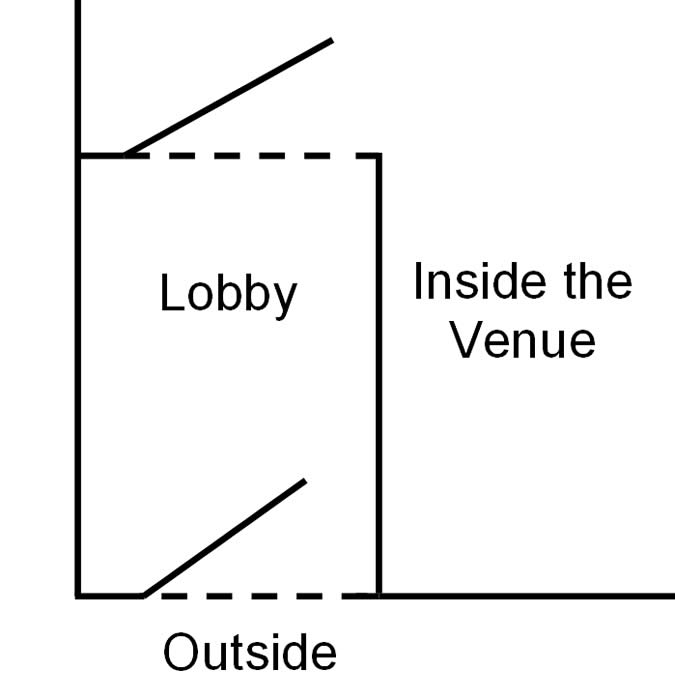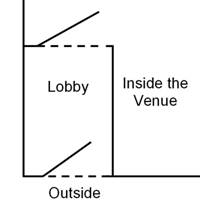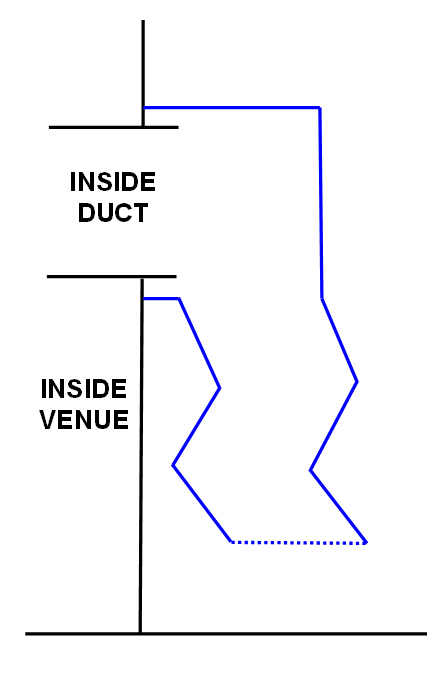We are open Monday to Friday
Product Hotline - 01993 704 981
Local call rate - 0208 0909586
SOUNDPROOFING FOR PUBS AND CLUBS – A Guide for the Venue Owner
 “In 2006 noisy pubs, clubs & entertainment venues affected over 5 million people in the UK that is approx 9% of the population.” (Source is a Mori Poll conducted in 2006)
“In 2006 noisy pubs, clubs & entertainment venues affected over 5 million people in the UK that is approx 9% of the population.” (Source is a Mori Poll conducted in 2006)
Our research would suggest this has dramatically increased in recent years.
Noise produced from a band playing in a pub or music from a Nightclub can be very loud and loud noise in these venues is a common noise problem. Due to the nature of this noise and its volume there is only so much you can do to reduce the possibility of noise complaints from nearby residents.
We have produced some sound proofing starting points below which will help contain any noise nuisance as much as possible without rebuilding the property.
Can’t I just stick on egg box TYPE foam to stop the noise/music leaving my premises?
The simple answer is no. If you have a noisy venue you need to soundproof the space. Adding egg box acoustic foam or sound absorbing products will only reduce the echo and reverberation in the space. It will not make a lot of difference in reducing noise from affecting other areas outside of the room. See more about this at the bottom of the page.
Where is my noise escaping from?
Noise is like air and will escape from anywhere it can. It normally leaves a room through gaps around windows, doors, ventilation ducts etc. The sound can also travel through the structure of the building (flanking sound) into adjacent buildings, particularly when large volumes of music are being produced.
How do I stop it leaving through my doorways?
To reduce sound leakage around a door you will need to add good quality acoustic door seals to the door and frame. This means a seal that will sit in the door jam around the sides and the top and a threshold seal that seals the bottom of the door. We supply ready to install soundproofing kits for internal doors that will help with this. See HERE.
For best results, the door should ideally be a solid core fire door with at least a 60 minute rating. These can be bought from most reputable timber suppliers as well as some builders merchants at reasonable prices.
My doors are open a lot of the time…what can I do?

 If your outer door is open a large amount of the time you will need to build a lobby type arrangement. Like the picture shown (left).
If your outer door is open a large amount of the time you will need to build a lobby type arrangement. Like the picture shown (left).
If you have a noise problem you will be unable to have a through draft and let fresh air enter though a doorway that is constantly open.
Both these doors will require Acoustic Seals and should have door closers on them. Ideally they should never both be open at the same time.
If you do not already have a lobby arrangement you can easily build one using our materials and can be made from a double stud frame.
See HERE for more info on soundproofed double stud frame systems.
I am also worried about my windows what can I do with them?

The best way to reduce noise through a window is to brick the space up with high density building blocks. If this is not an option then you will need to add secondary glazing. The thicker the glass the better reduction given.
Most venues will have double glazing already installed but on its own is not enough to reduce loud noise leaving the venue. If a double glazing system is not already installed, we would advise installing another thick pane of glazing as far away from the first pane as possible. This will give you secondary glazing as seen on the left. Generally speaking the bigger the air gap between the windows the better the reduction will be.
If you are unable to do this then your only option is to build a removeable window plug. Or build 18mm MDF shutters to move in front of the windows when loud music is being produced. See our article on how to soundproof windows HERE.
I have some holes in my walls and ductwork what can be done with that?

Any holes in the wall or ductwork that carries air in our out of the premises will also let sound pass through them.
If the duct is large you will need to construct an external box which covers the exit and allows the sound to be baffled using our acoustic foam. You will obviously need to let the air out / in but this box will baffle as much as the sound as possible.
We would suggest you build a box with MDF and line it with our thick sound absorbing Acoustic Foam. See example diagram left. The box would need to be weather proof and you can line it with our thick non-flammable acoustic foam. We would advise pointing it at the ground to protect it from the elements and ensuring a grill is placed over the exit to stop wildlife climbing inside. The Z shape of the box is very important in its effectiveness. The sound will hit each wall as it passes through and the more walls it hits the more reduction is given. The thinner you can make the z part of the box the better. Alternatively, straight ducting can be used but should incorporate at least one a right angled bend within it to increase the effectiveness of the sound loss it is designed to create.
If you have a small hole or air vent we would advise using one of our Acoustic Vents. These will not reduce very loud sound but will help reduce against talking and cheering etc. However, when used in conjunction with an extended soundproofed duct system, these acoustic vents are very effective.
Can I do anything with my speakers to reduce the problem?
Moving the speakers will not make a huge difference to the sound leaving the room. If the speakers are mounted on a wall or ceiling we would advise removing them. Attaching a speaker to a wall or ceiling will mean that the surface vibrates and this will radiate structure borne sound externally.
To reduce structure borne noise, we would advise sitting speakers on our Speaker Isolators or Music IsoMats this will decouple and reduce the transference of sound through the floor.
If you have a lot of bands or DJ’s playing at your venue it would be advisable to run some sound tests and maybe add a limiter on the amplifier. This would mean if the sound reached a certain level it would cut the amp and the music would stop. Whilst this may help you keep your licence it may annoy the band or DJ.
For more info on this click HERE
Can I Soundproof my stage or walls ?
If you use a stage or performing platform ensure that there is some good Acoustic Mineral Wool or other type of sound absorption beneath and some SBM5 Soundproofing Mat and/or Anti-Vibration mats on top of the stage. This will help reduce the resonance that a hollow stage will produce.
The walls of your venue need to ideally be high density block or brick walls. Lightweight stud or block walls do not offer sufficient sound blocking. Lightweight acoustic insulation like standard density Rockwool will NOT reduce sound leaving the premises.
If you wish to upgrade the walls please see the various soundproofing solutions for walls we have HERE and call our technical team on 0845 363 7131 (local call rate) or 01993 704981 from mobiles to discuss the options.
Can I stick sound absorbing products to the wall to reduce the sound?
When a pub or club gets busy and many people are talking there can sometimes be a battle to hear a conversation. This is normally because the overall sound in the room is bouncing off reflective hard surfaces such as wooden floors, wall and ceilings. (Reverberation)
Because of the overall volume premises tend to turn up their music so it can still be heard. In order to reduce the level of sound that the room creates you can install soft sound absorbing products for ceilings which can be fixed to the ceiling and high up on the walls additional sound absorbing products. These sound absorbers will mean conversation is clearer, staff don’t have to shout at customers and the overall music level can be reduced.
So the answer is, Yes. Using sound absorbers can help reduce the overall sound leaving the building as by using them less sound is generated in the first place.
However, using sound absorbers alone will not soundproof the building. If you are unsure what to use then just ask us.
Is there any point in doing all this?
Yes there is. If you’ve had noise complaints from neighbours your local environmental health officer may well have been called. They have the power to remove a public performer’s license until you have taken necessary steps to reduce the sound.
By following this guide and showing it to them you can prove you are taking the matter seriously and doing all you can to reduce the problem.
PLEASE NOTE
The information in this article is given in good faith. The advice above will help reduce noise pollution. For premises that have a severe noise problem, we would advise a noise survey is conducted by an Acoustic consultant who can make recommendations to achieve a solution. When this has been done, we can then supply any of the materials necessary to achieve that solution. Most noise consultants charge about £300/day plus expenses and we will be pleased to give details of the nearest consultants if required. Please email tech@soundservice.co.uk or call 0845 363 7131 (local call rate) or 01993 704981 from mobiles for more info.
